
views
X
Trustworthy Source
PubMed Central
Journal archive from the U.S. National Institutes of Health
Go to source
Noticing Physical Signs

Watch for abrupt and excessive sweating. If you suddenly break out in a sweat without doing any physical activity, your body could be gearing up for a panic attack. For some people, sweaty palms or a sweaty forehead is one of the first signs an attack is about to happen. Extreme sweating may also be accompanied by chills or hot flashes.
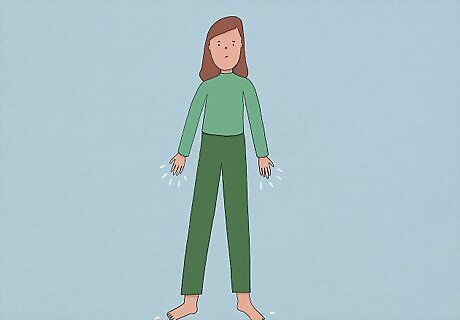
Note any clenching, numbing, or tingling of your hands, feet, and lips. A panic attack puts you in a state of fight-or-flight, which means your body will automatically send blood to your central organs and muscles to fight off the perceived threat. The lack of blood flow to your extremities can cause them to tingle, clench up, or go numb. For some people, these sensations can be early warning signs of a panic attack. To help ease these sensations, try stretching your fingers and toes or pursing and opening your lips. These small actions probably won’t stop the panic attack, but they can help you gain a sense of control over the uncomfortable sensations.

Notice a sudden urge to use the bathroom. Panic attacks can make all of your muscles clench up, putting pressure on your bladder, colon, and other digestive organs. The sensation may begin as a sinking feeling in your stomach (like anxious “butterflies”) and then transform into an intense urge to urinate or empty your bowels. It’s unlikely that you’ll soil yourself during a panic attack, but some people report doing so as a result of losing control of their body.
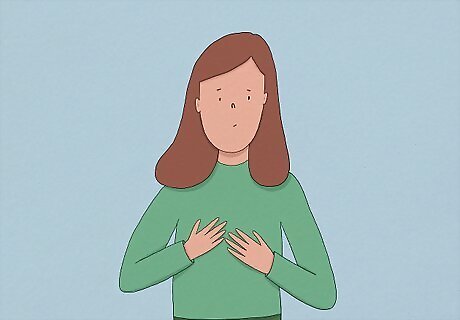
Be aware of any stabbing, sharp chest pain or tightness. Chest pain and discomfort might be the scariest part of a panic attack because you may become convinced you're having a heart attack. The symptoms are extremely similar, but someone having a heart attack may also experience squeezing or pressure in their chest. If you experience nausea, vomiting, or pain radiating from your chest to your arm, jaw, or shoulders, call an ambulance right away because you may be having a heart attack. A panic attack can’t cause a heart attack. However, long-term stress and anxiety can increase your risk of developing heart disease.
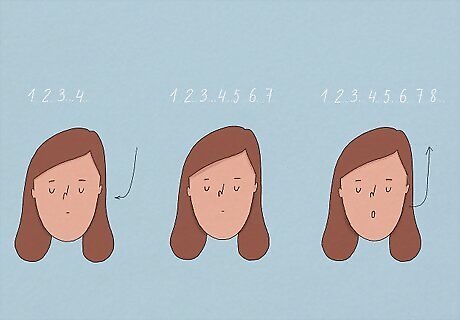
Monitor your breathing for short, shallow, or quickened inhales and exhales. A panic attack can make you feel like you're suffocating. Your breathing may be shallow and extremely quick to the point of hyperventilation. This rapid breathing causes extra air to accumulate in your diaphragm, causing the feeling of suffocation and, in some cases, pain in your chest. Use the 4-7-8 method to help regulate your breathing: breathe in for 4 counts, hold it for 7, and breathe out for 8.

Assess your vision for distortions, blurriness, or tunnel vision. Your eyes may feel like they're shaking, causing your vision to blur or distort peripheral objects. You may feel like you're looking out at the world through a tunnel or a veil of black or blurry spots. In some cases, you may lose your vision completely for a few minutes or the entire duration of the attack. If possible, try to focus on a single object within sight to calm any extra fear you have about impaired vision. Panic attacks can’t damage your eyes. However, it's possible to experience eye pain or aches for a few hours after the attack.
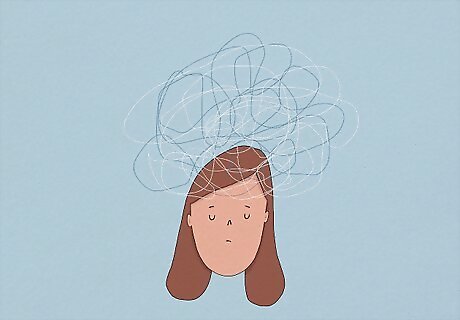
Check for lightheadedness or dizziness. Hyperventilation or inefficient breathing can cause you to feel dizzy or faint because your brain is overwhelmed with oxygen. You might feel a spinning sensation or have trouble holding yourself upright. If possible, lay down on the ground or a soft surface. Pay attention to the contact between your body and the ground or chair and remind yourself that you are held and supported.
Heeding Psychological Symptoms
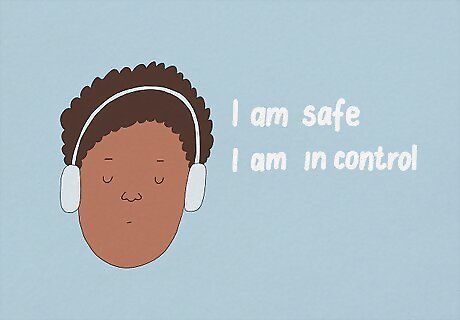
Be aware of a feeling of impending doom or danger. Often, the first sign of a panic attack is a looming feeling that something isn't quite right. You might feel afraid of everything but nothing in particular that you can logically point to. You may also feel like you need to flee or hide from the perceived catastrophe that’s yet to come. It may be hard to pull yourself out of this state, but try to remind yourself you're okay and that this feeling will pass. If possible, put on some calming music or say affirmations like "I am safe" or "I am in control."

Listen for ringing in your ears, garbled hearing, or temporary deafness. Sounds around you may sound garbled (e.g., someone speaking to you may sound like a slurred foreign language) or you may hear a constant or oscillating ringing sound. In some cases, you may hear static fuzz (like television “snow”) or nothing at all. Panic attacks affect your hearing because your body’s in a state of fight-or-flight, sending blood to vital organs and muscles. Try not to let your impaired hearing freak you out. If possible, focus on your breath and the calming, oceanic sound of each inhale and exhale.
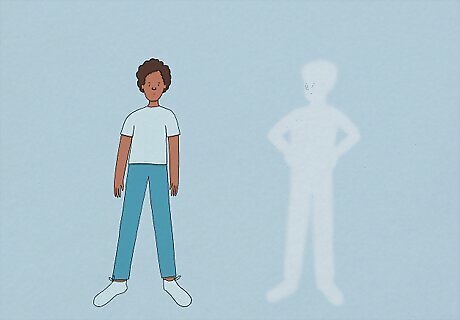
Take note of feeling outside of your body or removed from reality. Bodily detachment and derealization are extremely common when you're having a panic attack. Your body might feel like a foreign vessel or limp blob. You may even feel like you're watching yourself freak out from outside of your body or like reality is an illusion. If possible, wiggle your toes—try to focus on this small movement to bring yourself back into your body.
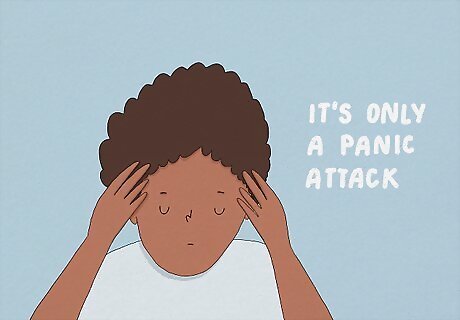
Assess whether you feel afraid you're about to die. Panic attacks can be intensely terrifying, so you might feel like you're about to die or you might attach to other catastrophic ideas. This can show up as racing thoughts, memories, or regrets flashing before your mind's eye. It's incredibly scary, but know that it's a very common symptom for many people who suffer from panic disorder. You may also feel that the experience will leave you with brain damage or personality changes. Try to remind yourself that you're only having a panic attack and your symptoms and thoughts cannot hurt you. If you've had attacks in the past, remind yourself that you survived.
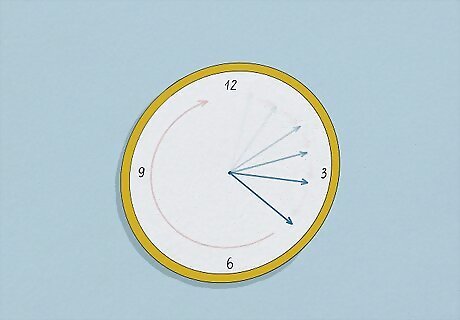
Be aware of a skewed sense of time. A panic attack can make it feel like time is passing extremely slow, super fast, or not at all (like a state of suspension). This can make you feel like the attack will never end. Panic attacks can last anywhere from 20 to 30 minutes, with the most intense symptoms happening around the 10-minute mark. Try repeating the mantra "this too shall pass" to help you stick it out.




















Comments
0 comment